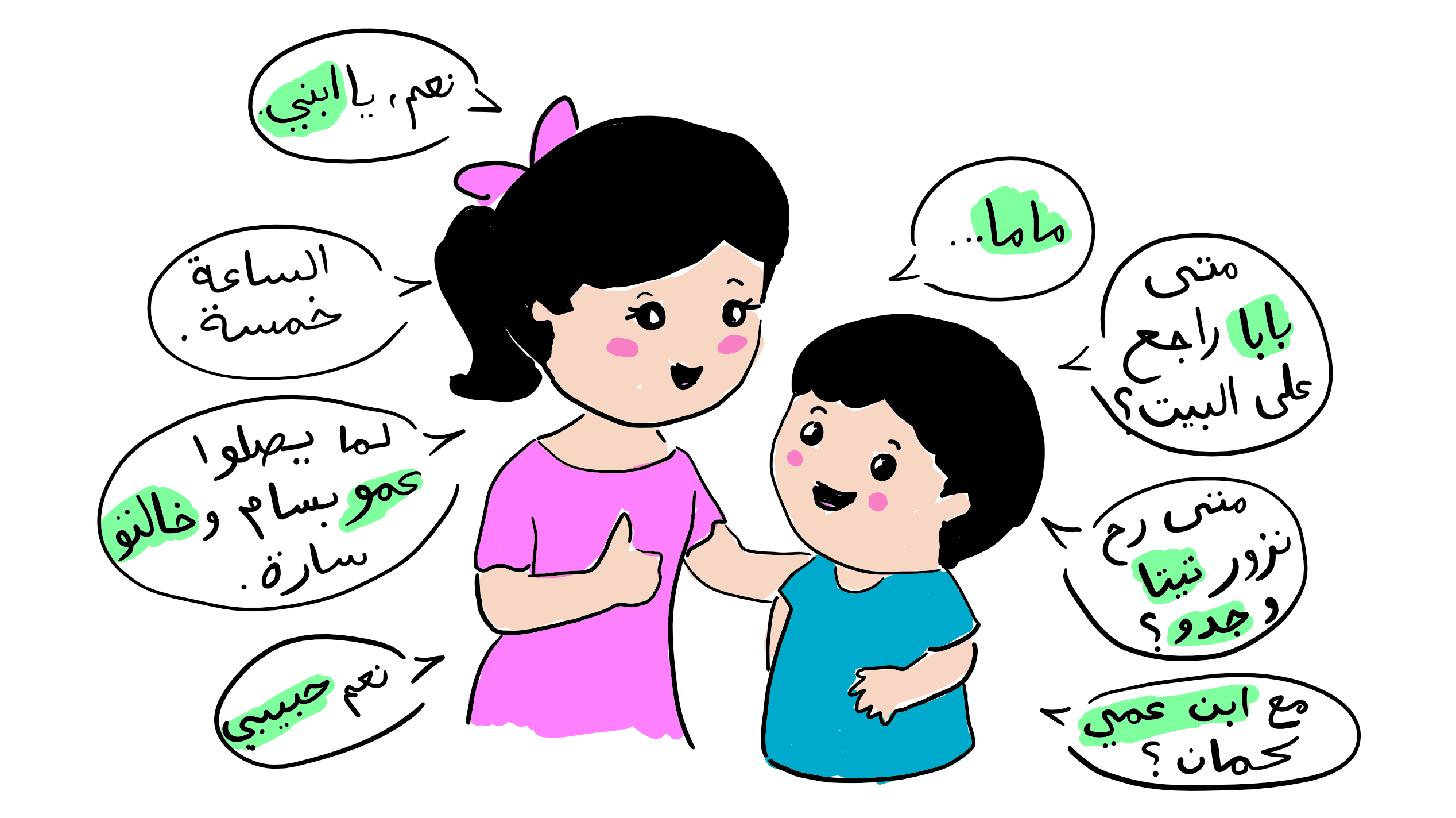How Arabic Speakers Address their Family Members Posted by yasmine on Sep 25, 2019 in Arabic Language, Culture, Vocabulary
When it comes to learning family members in Arabic from Arabic textbooks, you usually find a family tree showing mother, father, sister, etc. But how do Arabs actually address their family members? In English, children often address their father as dad, daddy, papa, pap, etc. In Arabic, you may find children addressing their father as أبي but rarely. Most likely you will hear بابا or يابا. Let’s continue looking at how other family members are addressed. ????
Here is a simple conversation between mother and son in Levantine Arabic. Notice how they address each other and their family members.
Translation:
Mom… Yes, my son.
When is dad coming home? Five o’clock.
When are we going to visit grandma and grandpa?
When uncle Bassam and aunt Sarah get here.
With my cousin too? Yes my love.
Here is how each family member is addressed:
mom ماما dad بابا or يابا
my son يا إبني my daughter يا بِنتي
grandma تَيتا or نانا grandpa جِدو or سِيدو
paternal uncle عَمو paternal aunt عَمتو
maternal aunt خالتو maternal uncle خالو
Note: In Arabic speaking countries, children and young adults address elders who are not family as aunt and uncle to show respect. For example, the grocer at the little supermarket can be addressed as عمو.
Cousins: As you probably already know, in Arabic there are six different ways to say cousin depending if the cousin is son/daughter of maternal or paternal aunt/uncle.
ابن عَمي (son of my father’s brother) ابن عَمتي (son of my father’s sister)
ابن خالي (son of my mother’s brother) ابن خالتي (son of my mother’s sister)
بِنت عَمي (daughter of my father’s brother) بِنت عَمتي (daughter of my father’s sister)
بِنت خالي (daughter of my mother’s brother) بِنت خالتي (daughter of my mother’s sister)
Terms of endearment addressing family: These terms of endearment are used mostly between spouses and especially with children, grandchildren, nieces and nephews. Sometimes nieces and nephews are addressed as son/daughter ابني/بنتي to show closeness.
يا حَبيبي/حَبيبتي (my love)
يا عُيوني (my eyes)
يا روحي (my soul)
يا عمُري/ حَياتي (my life)
يا قَلبي (my heart)
As an Arabic learner, you most likely won’t be addressing your family in Arabic, but it’s good to be familiar with how native Arabic speakers address their families so you can better comprehend their speech. ? ????

Build vocabulary, practice pronunciation, and more with Transparent Language Online. Available anytime, anywhere, on any device.




